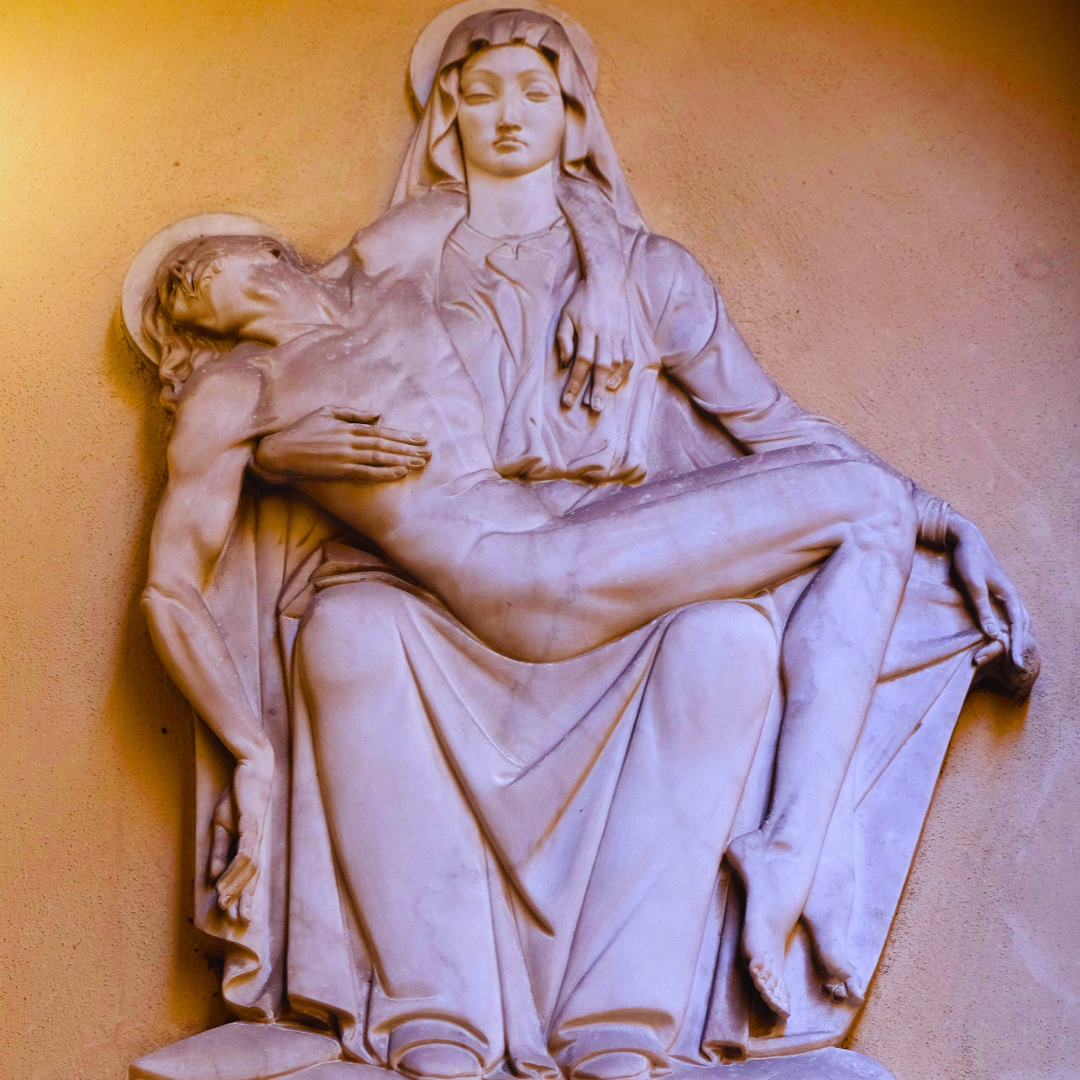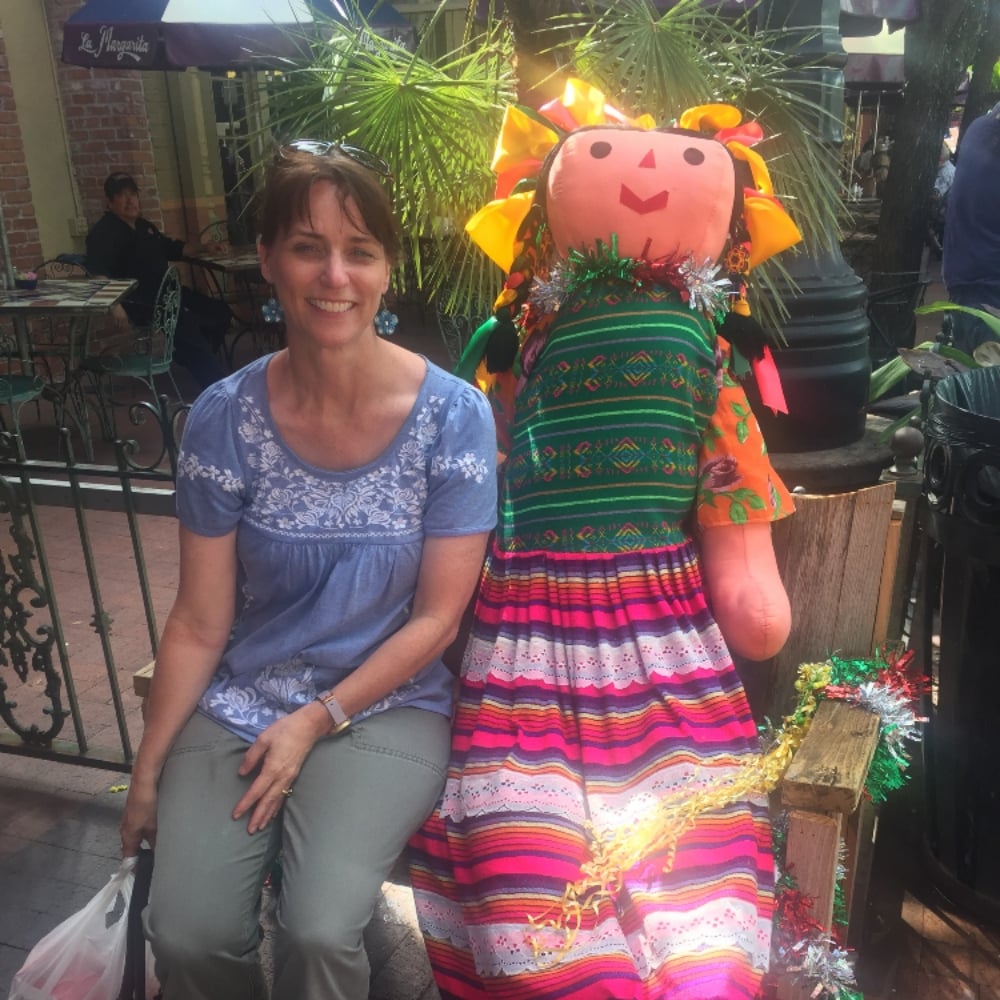
A movie and a book help Sarah Pedrozo understand an essential aspect of Mary’s motherhood.
I should know better by now than to click on those awful headlines that pop up randomly on my phone. You know the ones. They shout “Breaking News!” and detail the account of yet another horrific human incident just come to light.
I’ll spare you the awful details of the latest story I read and just say that when I had finished, my stomach felt queasy, it had been so distressing. I wondered how any adult human could possibly sink to such a low level, seemingly completely unaffected by the evil he had done to others.
“Really, this is someone only a mother could love,” I thought. And then I had a little epiphany as two memories sprang to mind.
I recalled the 1995 movie Dead Man Walking, starring Susan Sarandon and Sean Penn. This movie retold the true story of violence done to a teenage couple by Penn’s character, one Matthew Poncelot. Sarandon plays the role of Sr. Helen Prejean, a nun who becomes a spiritual advisor to Poncelot, now a convicted criminal on death row in Louisiana, before his death.

In the movie, Sr. Helen visits all parties involved, from the families of the teenagers to Poncelot’s mother. In one particularly moving scene, Poncelot’s mother brings several photos of her son as a baby and small child to show to the families of the children he harmed.
“I just wanted them to see how he was,” she explains, meaning he wasn’t always the criminal they knew him as.
At the time I saw the movie I didn’t have children myself, but I was struck by her love for her murdering son. She never made any excuses for him or what he had done. She knew he would have to pay the price for his deeds. But she still loved him, despite all that, with an unwavering, clear-sighted, deep love, and she tried to invite others to see that small part of him. Poncelot had become someone only a mother could love, and love him she still did.
The second memory was a quote from one of my favorite books, Freckles, by Indiana author Gene Stratton-Porter. The main character in the story, James Ross McLean, aka "Freckles," is an orphan. He’s rejected by everyone and everything until he encounters a woman named Mrs. Duncan. Mrs. Duncan is a mother. She takes one look at Danny and immediately feeds him, welcomes him and makes him part of her family. After receiving her kindness in many ways, Freckles one day bursts out “Oh, how I wish you were my mother!”
Mrs. Duncan is surprised at his reaction.
“Why, Freckles, are you not bright enough to learn without being taught that I am your mother? ... Once a child has beaten his way to life under the heart of a woman, she is mother to all men, for the hearts of mothers everywhere are the same. Bless ye, laddie, I am your mother!”
Freckles did not have to be born from her to be her child. She responds to him because of who she has become through being a mother, not because of who Freckles is, or his personal status.

Both of these little vignettes ran through my mind after reading the stomach-churning news story I mentioned above, and for a moment I had an insight. As Jesus hung on the cross, being treated like one of the worst criminals of His time, he saw His mother and the Apostle John.
When Jesus saw his mother and the disciple there whom he loved, he said to his mother, “Woman, behold, your son.”
Then he said to the disciple, “Behold, your mother.” (John 19:26-27a)
In this exchange, Jesus broadens Mary’s motherhood to include all of humanity. This was pure gift on Jesus’ behalf.
Jesus gives us the gift of His mother for many reasons, but surely one of them is so that we will always have a mother who loves us, no matter what we do or who we become as we make decisions that form us, in the twists and turns of our own lives. Mary loves each of us in the same way that Poncelot’s mother loved him. Mary knows us through and through and loves us anyway.
Just as she stays with Jesus in his darkest hour, all the way to the bitter end, Mary stays with us, not abandoning or deserting us either. On the other hand, just like Mrs. Duncan, Mary doesn’t judge us. Mrs. Duncan doesn’t spend much time asking Freckles how or why he ended up in his situation. Instead, she sees a young man who needs some love. In the same way, Mary intercedes for us. She assesses our needs and sees our hurts and tends to us.
Mary gives us the model of being a catholic (universal) mom, in that she is able to love both the victim and the victimizer with a mother’s love. She is not suspicious of the orphan, nor repulsed by the one only a mother can love. Somehow, she is able to see that small part of each of them that reveals her Son, Jesus.
This understanding of her role gives me, personally at least, a sense of relief when I am confronted by stories of people who seem to have abandoned their humanity altogether, because we all have a Mother who hasn’t abandoned us.

Copyright 2023 Sarah Pedrozo
Images: Canva
This article contains Amazon affiliate links, which provide a small compensation to the author of this piece when purchases are made through the links, at no cost to you. Thank you for supporting our Catholic Mom writers in this way.
About the Author

Sarah Pedrozo
Sarah Pedrozo has worked in family faith formation for the past 15 years, helping families learn and live their Catholic faith. With master's degrees in theology and English, she especially likes using stories to catechize. Sarah blogs at BasketsAndBlessings.com, in between working and taking care of her family. She loves bluebonnets, her rescue dogs and the Texas Hill Country.


.png?width=1806&height=731&name=CatholicMom_hcfm_logo1_pos_871c_2728c%20(002).png)
Comments